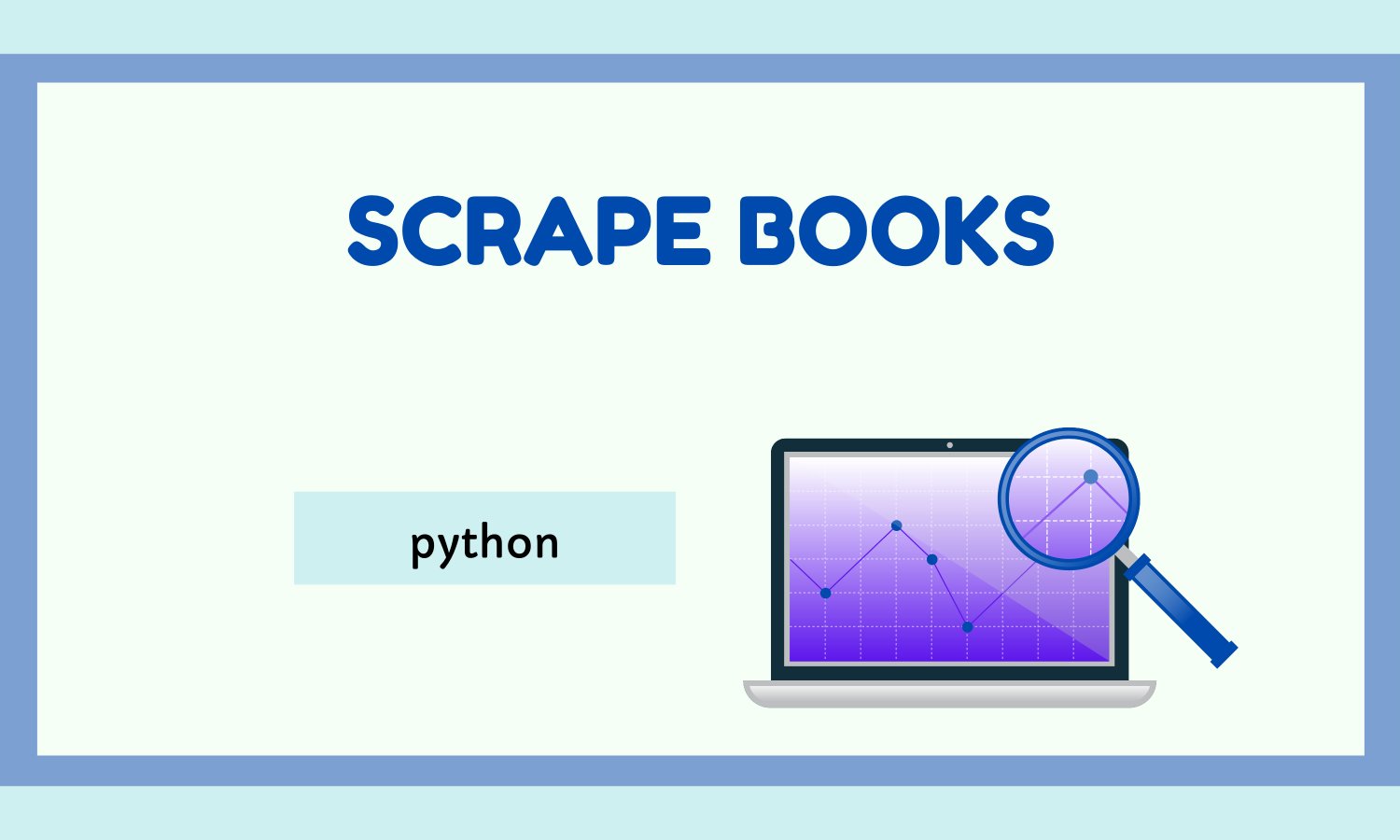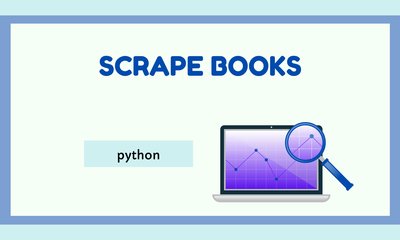Cách Scrape Trang Web Bản Đầu Tiên - Hướng Dẫn Mã Ví Dụ
By hientd, at: 14:10 Ngày 08 tháng 11 năm 2024
Thời gian đọc ước tính: __READING_TIME__ phút


Truy xuất dữ liệu từ các trang web thường là một kỹ năng hữu ích, cho dù bạn đang thu thập dữ liệu cho nghiên cứu, tạo tổng hợp danh sách hay xây dựng sản phẩm dựa trên web. Trong hướng dẫn này, chúng tôi sẽ chỉ cho bạn cách truy xuất dữ liệu sách được liệt kê trên The First Edition, một trang web có danh mục sách hiếm phong phú. Chúng tôi sẽ hướng dẫn bạn qua một phương pháp giải quyết vấn đề để thu thập thông tin như SKU, tiêu đề, tác giả, giá cả, phiên bản, mô tả, địa điểm, ngày xuất bản và ISBN.
1. Một vấn đề mẫu
Mục tiêu của chúng ta là thu thập thông tin sách từ The First Edition. Chúng ta sẽ nhắm mục tiêu trích xuất các chi tiết cần thiết như SKU, tiêu đề, tác giả, giá cả, phiên bản, mô tả, địa điểm, ngày xuất bản và ISBN cho mỗi cuốn sách. Hãy tưởng tượng một kịch bản mà chúng ta cần dữ liệu này để phân tích hoặc để hiển thị dữ liệu sách trong một ứng dụng.
Kết quả đầu ra mẫu của một cuốn sách có thể trông như thế này
{
"sku": "12345",
"title": "To Kill a Mockingbird",
"author": "Harper Lee",
"price": "$1,250.00",
"edition": "First Edition",
"description": "A rare first edition of Harper Lee's 'To Kill a Mockingbird' with original dust jacket.",
"location": "New York, USA",
"date_published": "1960",
"isbn": "978-0-06-112008-4"
}
2. Phân tích vấn đề và xây dựng các bước giải pháp
Khi tiếp cận một nhiệm vụ truy xuất dữ liệu web, việc phân tách vấn đề là rất quan trọng. Dưới đây là các bước chúng ta sẽ thực hiện:
- Xác định dữ liệu: Xem cấu trúc trang web để tìm các phần tử chính xác chứa dữ liệu cần thiết.
- Hiểu về phân trang: Hầu hết các trang thương mại điện tử đều có nhiều trang danh sách. Chúng ta cần tìm ra cách điều hướng qua các trang này.
- Cấu trúc trình trích xuất: Xây dựng một hàm để trích xuất dữ liệu từ một trang sách đơn lẻ, sau đó mở rộng nó để truy xuất dữ liệu trên nhiều sách và trang.
- Biên dịch dữ liệu: Lưu trữ dữ liệu đã truy xuất ở định dạng có cấu trúc (ví dụ: CSV) để phân tích thêm.
3. Triển khai giải pháp
Bước 1: Nhập các thư viện cần thiết và thiết lập tiêu đề
Để bắt chước lượt truy cập trình duyệt của người dùng, chúng ta sẽ sử dụng tiêu đề HTTP trong các yêu cầu của mình.
import requests
from bs4 import BeautifulSoup
import pandas as pd
import time
# URL cơ sở của trang web
base_url = "https://thefirstedition.com"
# Tiêu đề để bắt chước lượt truy cập trình duyệt
headers = {
"User-Agent": "Mozilla/5.0 (Windows NT 10.0; Win64; x64) AppleWebKit/537.36 (KHTML, like Gecko) Chrome/91.0.4472.124 Safari/537.36"
}
Bước 2: Định nghĩa các hàm để xử lý phân trang
Chúng ta cần tìm tổng số trang trong mỗi danh mục để trình trích xuất của chúng ta biết khi nào nên dừng lại.
def get_total_pages(category_url):
response = requests.get(category_url, headers=headers)
soup = BeautifulSoup(response.content, "html.parser")
# Tìm phần tử phân trang và trích xuất tổng số trang
pagination = soup.find("nav", class_="woocommerce-pagination")
if pagination:
pages = pagination.find_all("a")
if pages:
last_page = pages[-2].get_text()
return int(last_page)
return Bước 3: Trích xuất chi tiết sách
Mỗi trang sách đều chứa các phần tử cụ thể lưu giữ các chi tiết như SKU, tiêu đề, tác giả, giá cả và mô tả. Dưới đây là cách để truy xuất các phần tử này:
def extract_book_details(book_url):
response = requests.get(book_url, headers=headers)
soup = BeautifulSoup(response.content, "html.parser")
details = {}
# Trích xuất SKU
sku = soup.find("span", class_="sku")
details["SKU"] = sku.get_text(strip=True) if sku else None
# Trích xuất tiêu đề
title = soup.find("h1", class_="product_title")
details["Title"] = title.get_text(strip=True) if title else None
# Trích xuất giá cả
price = soup.find("p", class_="price")
details["Price"] = price.get_text(strip=True) if price else None
# Trích xuất mô tả
description = soup.find("div", class_="woocommerce-product-details__short-description")
details["Description"] = description.get_text(strip=True) if description else None
return detailsBước 4: Truy xuất nhiều trang trong một danh mục
Để lặp qua các trang trong một danh mục và thu thập dữ liệu, chúng ta sẽ sử dụng một hàm phân trang.
def scrape_category(category_url):
books = []
total_pages = get_total_pages(category_url)
for page in range(1, total_pages + 1):
print(f"Scraping page {page} of {total_pages} in category {category_url}")
page_url = f"{category_url}/page/{page}/"
response = requests.get(page_url, headers=headers)
soup = BeautifulSoup(response.content, "html.parser")
# Tìm tất cả các liên kết sách trên trang
book_links = soup.find_all("a", class_="woocommerce-LoopProduct-link")
for link in book_links:
book_url = link.get("href")
print(f"Scraping book: {book_url}")
book_details = extract_book_details(book_url)
books.append(book_details)
time.sleep(1) # Delay để tránh quá tải máy chủ
return books
4. Kết hợp tất cả lại và trình diễn một liên kết danh mục
Bây giờ chúng ta có thể áp dụng trình trích xuất của mình vào một danh mục và lưu đầu ra vào tệp CSV:
# Chọn một danh mục để truy xuất
category_url = "https://thefirstedition.com/product-category/literature-classics/"
# Truy xuất danh mục đã chọn
books_data = scrape_category(category_url)
# Chuyển đổi danh sách sách thành DataFrame
df = pd.DataFrame(books_data)
# Lưu vào CSV
df.to_csv("the_first_edition_books.csv", index=False)
print("Scraping completed. Data saved to 'the_first_edition_books.csv'")
Chạy mã trên, bạn sẽ thu thập các chi tiết đã chỉ định cho mỗi cuốn sách trong danh mục đã chọn, được lưu trong the_first_edition_books.csv.
Đoạn mã đầy đủ được lưu trữ ở đây
5. Bài học kinh nghiệm
- Truy xuất dữ liệu có trách nhiệm: Điều cần thiết là phải có trách nhiệm khi truy xuất dữ liệu. Luôn thêm độ trễ giữa các yêu cầu để tránh quá tải máy chủ. Hãy chắc chắn tuân theo các hướng dẫn
robots.txtcủa trang web.
- Xử lý lỗi: Không phải tất cả các trang đều có cấu trúc giống nhau. Khi xây dựng các trình trích xuất, hãy thêm các kiểm tra để xử lý các trường bị thiếu hoặc bố cục không mong muốn.
- Logic phân trang: Điều hướng nội dung nhiều trang là rất quan trọng để thu thập dữ liệu toàn diện. Hãy kiểm tra kỹ logic phân trang của bạn để đảm bảo tất cả các mục đều được thu thập.
- Cấu trúc dữ liệu: Sắp xếp dữ liệu đã truy xuất một cách có ý nghĩa. Sử dụng định dạng có cấu trúc như CSV hoặc cơ sở dữ liệu sẽ giúp dễ dàng phân tích hoặc sử dụng dữ liệu sau này.
Hướng dẫn này cho thấy cách phân tách và giải quyết một vấn đề truy xuất dữ liệu web một cách hiệu quả, giúp bạn có cả dữ liệu có cấu trúc và hiểu biết về việc xây dựng các trình trích xuất web. Chúc bạn thu thập dữ liệu vui vẻ!
Hướng dẫn tiếp theo: Chúng tôi chỉ đề cập đến cách truy xuất danh sách liên kết sách từ liên kết danh mục và chi tiết sách từ liên kết sách. Tuy nhiên, chúng tôi chưa đề cập đến "cách lấy danh sách liên kết danh mục từ trang web" - Bạn có thể thử nhé





